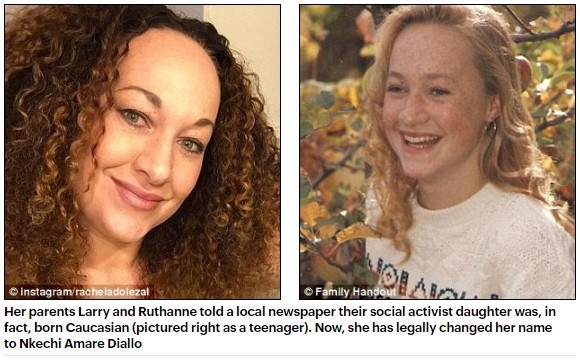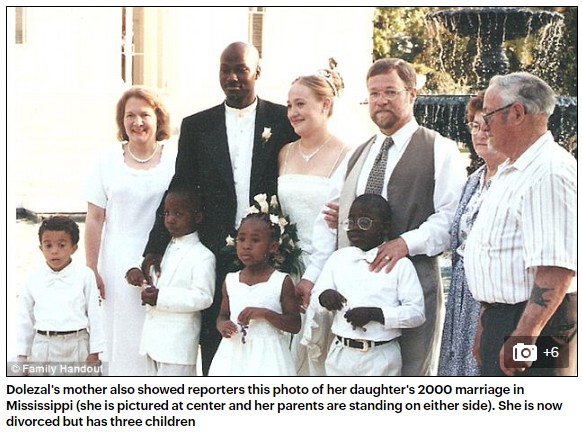Why I Changed My Name From Rachel to Nkechi – U.S Professor, Rachel Dolezal

Rachel Dolezal, the former head of Spokane, Washington’s NAACP chapter who claimed to be black before her parents ‘outed’ her as white, officially changed her name to Nkechi Amare Diallo in a Washington court in October, legal documents obtained by DailyMail.com show.
Nkechi, short for Nkechinyere, is a name that originates from the Igbo language of Nigeria and means ‘what god has given’ or ‘gift of god.’
Diallo, meaning ‘bold,’ is a last name of Fula origin. The Fula people are a Muslim ethnic group thought to have roots in the Middle East and North Africa, who are now widely dispersed across West Africa.
Since the revelation about her race two years ago, Dolezal, 39, has had a difficult time patching her reputation back together and providing for herself and three children.After applying for more than 100 jobs, including a position at the university where she used to teach, she says that no employer will hire her. A friend reportedly helped her pay two months of rent and Dolezal said she expects to be homeless.
Shortly after her name change last fall, however, Dolezal employed her newfound identity to try to garner a small amount of positive attention.


She started a Change.org petition in October urging the TEDx organization to post one of her controversial speeches from April, 2016 at the University of Idaho. She listed the petition under Nkechi Diallo, never mentioning her birth name.
‘Rachel Dolezal’s TEDx Talk on Race & Identity…is still not available online. Please post her talk online immediately. She should not be censored due to her unique perspective. We want to watch this speech!’ the petition read.
Though Dolezal only received 30 of 100 required signatures, TED begrudgingly posted the video on November 2, along with a description of the politics surrounding her speech.
‘TEDx organizers host events independent of TED, and they have the freedom to invite speakers they feel are relevant to their communities,’ the TED blog read.
‘These volunteers find thousands of new voices all over the world – many of which would not otherwise be heard – including some of our most beloved, well-known speakers, people like Brene Brown and Simon Sinek.
‘What TEDx organizers have achieved collectively is remarkable. But, yes, some of them occasionally share ideas we don’t stand behind.
‘This particular talk has sparked much internal debate. For many on our staff, sharing the talk risks causing deep offense, and runs counter to TED’s mission of ideas worth spreading.
‘But for others, now that the talk has been recorded, refusing to post it would unduly limit an important conversation about identity, and the social underpinning of race -and would be counter to TED’s guiding philosophy of radical openness. There’s no easy middle ground here.’
In 2015, Dolezal, then a high-profile NAACP leader and part-time professor of Africana Studies at Eastern Washington University, was forced to step down from her respective leadership roles when her parents Larry and Ruthanne told a local newspaper that their daughter was, in fact, born Caucasian.











